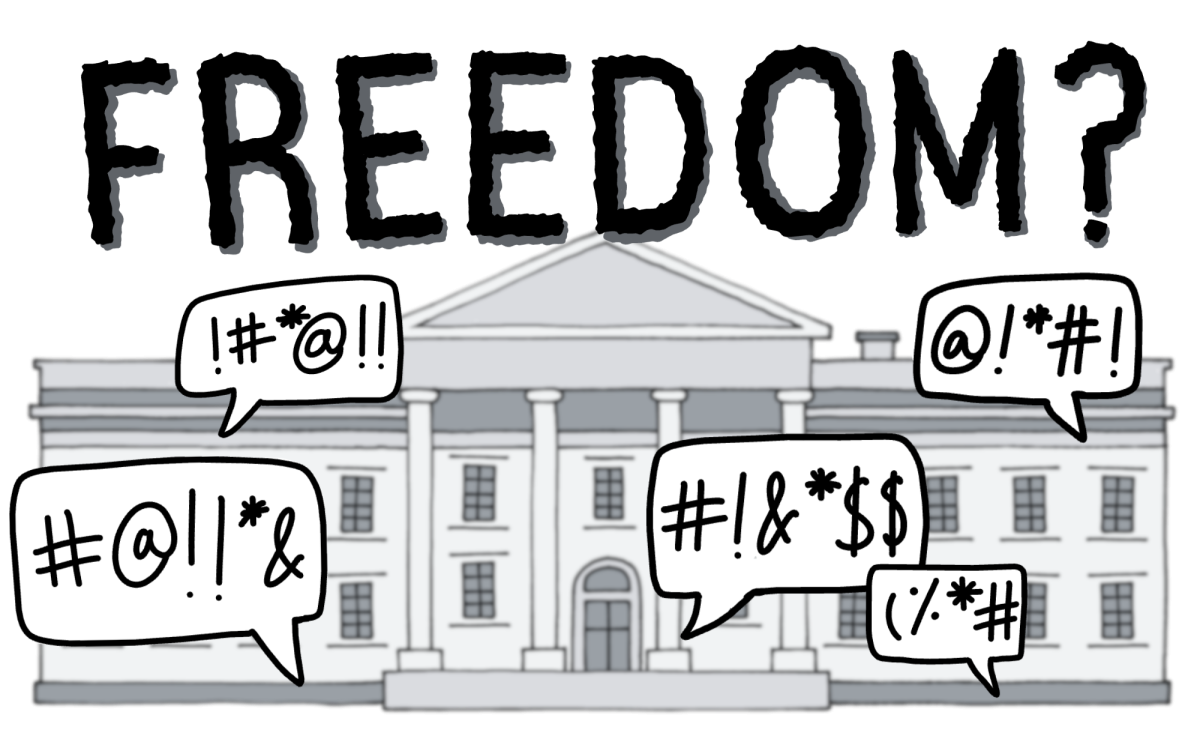As America begins Donald Trump’s divisive second term, social media companies are portraying the right to speak freely as the right to express prejudice. Many are now allowing discriminatory conduct and justifying it with the First Amendment.
In January, Mark Zuckerberg announced that Meta would adopt new content restriction policies, which he later justified on the popular podcast the Joe Rogan Experience. Zuckerberg consistently mentioned working with Donald Trump to protect free speech on Meta products.
Free speech and healthy debate are admirable causes to support. Unfortunately, despite Zuckerberg’s claims, Meta’s new policies facilitate more prejudiced hostility than respectful disagreement.
Meta primarily loosened restrictions on hateful conduct by rescinding protections for vulnerable groups. According to the company’s statements, the policies are “designed to allow room” for users to “use insulting language (when) discussing political or religious topics, such as when discussing transgender rights, immigration, or homosexuality.”
Users are also allowed to call for discrimination and exclusion, as the new policies “allow content arguing for gender-based limitations of military, law enforcement, and teaching jobs.” Previous clauses banning racism and Islamophobia have also been removed.
Instead of protecting self-expression and free speech for all parties, Meta is allowing targeted attacks on minorities. The new policies do not encourage freedom; they encourage conformity to conservative ideology.
While the new rules on hateful conduct are concerning, Meta’s most alarming change was ending fact-checking. Zuckerberg stated that the company was trying to avoid being politically biased when removing content.
“After Trump first got elected in 2016, the legacy media wrote nonstop about how misinformation was a threat to democracy. We tried in good faith to address those concerns without becoming the arbiters of truth,” Zuckerberg said. “But the fact checkers have just been too politically biased and have destroyed more trust than they’ve created.”
By Meta’s own estimates, only between 0.1 and 0.2 percent of its content was falsely removed. Abandoning fact checking, rather than editing the review process or hiring a different fact checking company, is excessive. Still, Zuckerberg stated that the company will move to the community notes system championed by Elon Musk, another Trump ally.
On X, formerly known as Twitter, content is reported by users who notice and report misinformation. Corrections are only posted once approved by several users, meaning misinformation gains significant traction before it is flagged. In that time, many users may become confused and take the post as fact.
Because no third party ensures that community notes are truthful, the notes tend to be witty comments or popular opinions, not factual corrections. When looking at a flagged post, users are on their own when evaluating the accuracy of the post and the accuracy of the community note itself.
Musk has defended X’s relaxed policies as protections for free speech, but his defense of the First Amendment is hypocritical. He declared that the word “cisgender” was a slur on X and said that the British prime minister should be imprisoned for his left-leaning policies. According to CNN, he has also suspended the X accounts of journalists he dislikes. Unfortunately, Musk denies free speech to those he disagrees with.
Zuckerberg and Musk are not the only social media leaders supporting Trump. TikTok prematurely disabled the app only to come back online less than 24 hours later, thanking the president for protecting the app despite Trump being the original instigator of the ban. Google, which owns YouTube, donated to Trump’s inaugural fund and sent CEO Sundar Pichai to the inauguration.
Social media’s submission to Trump is not explained by a sudden passion for free speech. Trump is known for being tough on political opponents, so social media leaders are attempting to exit his list of enemies by adopting his values, using free speech as a diplomatic justification. The strategy seems to be working – in January, Meta settled a long-running lawsuit with Trump.
As companies rebrand their submission to Trump, it is worth clarifying what the First Amendment truly protects. It allows American citizens to create petitions, publish news and speak without fear of government retribution, but Trump has not proven his commitment to such values.
Trump has spoken multiple times about imprisoning his critics and revoking the licenses of news broadcasts that question him. In his inaugural address, the president said the government would only recognize two genders, directly contradicting Meta’s suggestion that the topic was worthy of two-sided debate.
While Zuckerberg may not have declared himself the arbiter of truth, social media owners have declared themselves the arbiters of freedom, morality and patriotism. They have manipulated the right to criticize authority, passing it off as the right to degrade and discriminate against others.
Free speech is best exercised through factual debate, not misinformation and bigotry. It’s most effective when people empathetically communicate with each other rather than becoming angry and turning to insults. And above all, free speech thrives when people stay true to their principles no matter who is in charge.


